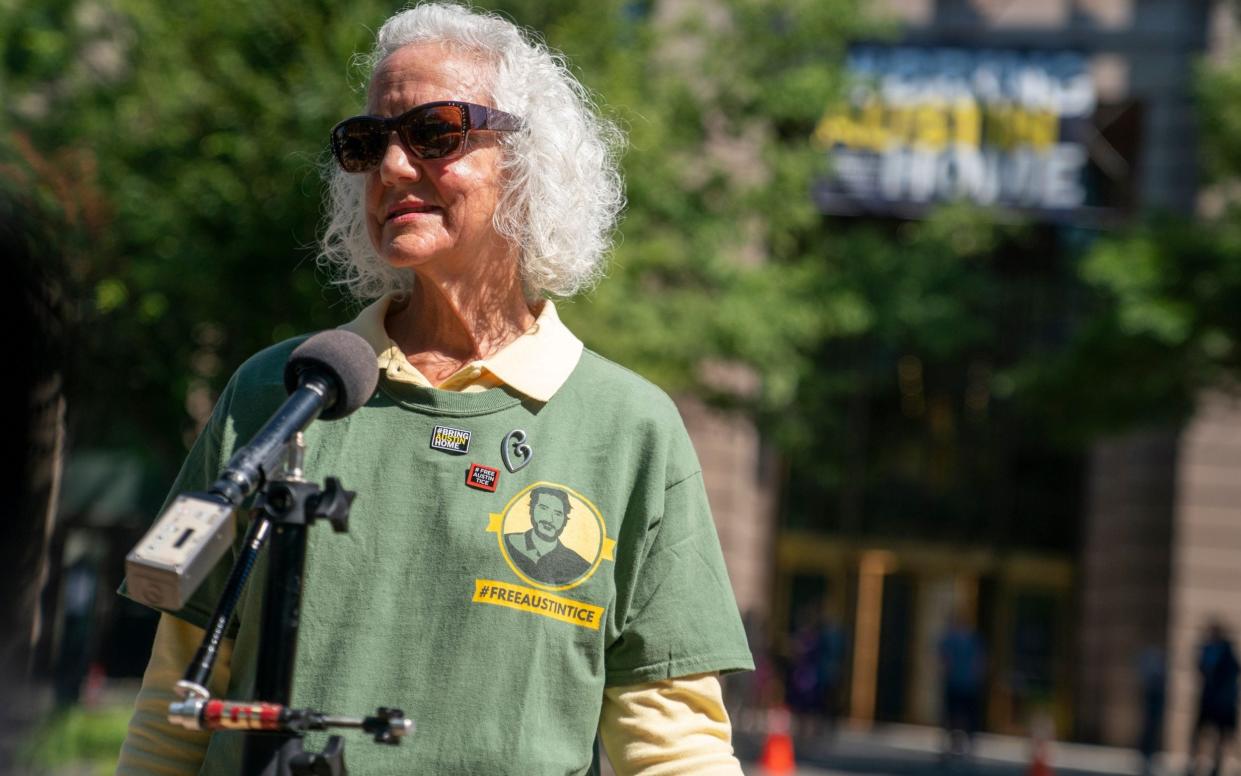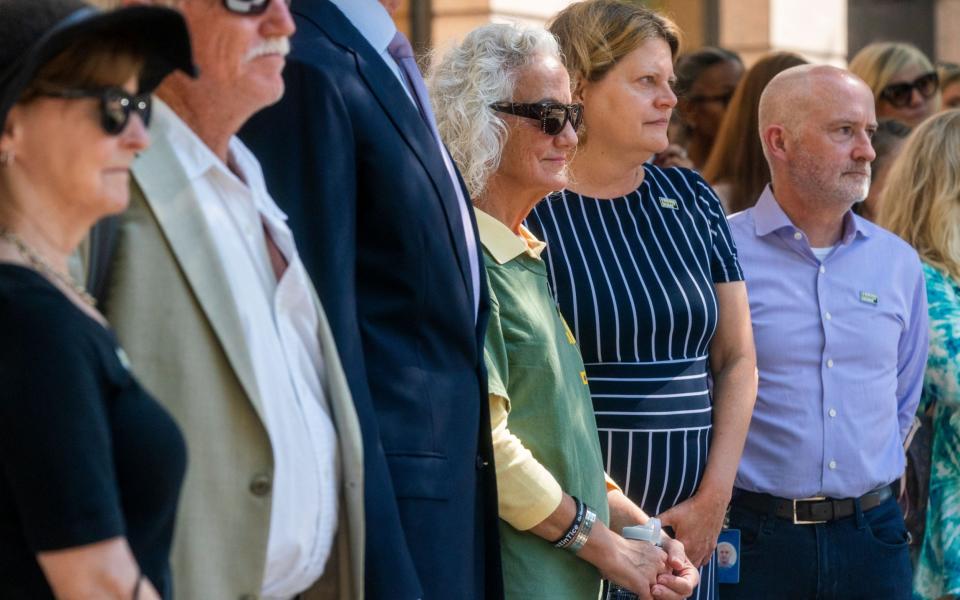Exclusive: Fresh hopes journalist Austin Tice is alive 10 years after his disappearance

- Oops!Something went wrong.Please try again later.
- Oops!Something went wrong.Please try again later.
Debra Tice prefers to remember her son Austin the way he was rather than imagine how he might have suffered in the decade since the 31-year-old freelance journalist disappeared while reporting on Syria’s nascent civil war.
Normally Ms Tice likes to remember how her eldest boy, a strapping Marine captain, would pick her up and spin her around in his arms. But on Sunday she will be contemplating a grim milestone in her son’s disappearance.
“I will be imagining how challenging it's going to be for him to realise that today I have been here 10 years,” she told The Telegraph this week over a WhatsApp call.
On August 14 2012, Mr Tice, a freelance reporter for The Washington Post and McClatchy newspapers, disappeared while driving through a regime-controlled area on the outskirts of Damascus.
Five weeks after he disappeared, a video entitled “Austin Tice still alive” was uploaded to YouTube, showing armed men roughly pushing a blindfolded Mr Tice up a hill. The grainy footage showed Mr Tice reciting a prayer in broken Arabic before gasping “Oh, Jesus. Oh, Jesus.”

It was the last public sighting of Mr Tice. While no public information conclusively proves Mr Tice is still alive, his family’s hopes were raised this week when President Joe Biden issued a carefully worded statement.
In it President Biden called on the Syrian government to “help us” bring Mr Tice home. “We know with certainty that he has been held by the Government of Syria.”
It was the clearest message to date by a US official that Mr Tice was, and may still be, in custody in Damascus.
Secretary of State Antony Blinken issued a more strident statement. “We continue to demand that Syrian officials fulfill their obligations under the Vienna Convention on Consular Relations to acknowledge the detention of Austin and every other US national held in Syria," he said.
Mr Tice has now been missing through three US presidencies and if he is still alive is the longest-held American journalist in history.

Like the UK, the United States maintains it will not negotiate with hostage takers. But like the UK, the US has shown that it will do so under certain circumstances.
In March, British-Iranian dual national Nazanin Zaghari Ratcliffe was freed from detention in Iran, where she was held since 2016, after the UK paid a historic £400m debt to Tehran. And in May, former US marine Trevor Reed was freed from prison in Moscow after the United States exchanged him in a prisoner swap for pilot Konstantin Yaroshenko, who was sentenced to 20 years imprisonment in 2011 for conspiring to import $100 million worth of cocaine into the U.S.
In May, President Biden met with Marc and Debra Tice, telling them that returning their son was a priority. During the meeting he told the National Security Council to engage directly with the Syrian government.
“Listen to them, find out what they want, and work with them,” Ms Tice recalls Mr Biden instructing them.
Three-and-a-half months later, US officials are yet to meet with Syrian officials, frustrating Ms Tice.
“We’ve fist-bumped MBS since then, how complicated was that?” she said, referring to President Biden’s visit to Saudi Arabia to repair relations with Crown Prince Mohammed Bin Salman.
“I don’t think it’s as high a priority as oil,” she said of the administration’s focus on shoring up relations with oil-producing autocrats amid energy shortages exacerbated by Russia’s invasion of Ukraine.

President Biden is not the first American leader to seek to free Mr Tice. Former president Donald Trump was enthusiastic at the thought of freeing American hostages. Former national security advisor John Bolton wrote in his memoir that he found Mr Trump’s constant desire to call up Syrian president Bashar al-Assad "undesirable".
In August 2020, in its final months in office, the Trump administration dispatched White House aide Kash Patel and special envoy for hostage affairs Roger Carstens to Damascus to meet Ali Mamlouk, then the director of Syria’s National Security Bureau.
According to pro-regime newspaper Al-Watan, Syrian officials demanded the total withdrawal of American troops from Syria as a precondition of negotiations.
While the talks did not progress, according to the man who brokered the meeting, Lebanon’s general security chief Abbas Ibrahim, the Syrians had indicated a willingness to admit they held Mr Tice.
“I’m talking about a promise of proof of life,” Mr Ibrahiim told the Texas Monthly, declining to say more.
The longer a hostage is held, the harder it can be to free them, according to Diane Foley, whose son Jim was kidnapped and murdered by Islamic State militants.
“Captors dig in their heels, they want more,” she told The Telegraph.
Since her son’s murder, Ms Foley has since started an organisation to advocate for freeing Americans held hostages abroad. The Foley Foundation counts 67 publicly disclosed cases of Americans held hostage or wrongfully detained abroad, with Ms Foley saying the average length of their detention is four-and-a-half years.
She now questions the official American and British policy of not engaging with hostage takers.
“We don’t want to incentivise people to take more hostages but what we’re finding is that even though we don’t incentivise, Americans and the British tend to have the worst outcomes in hostage situations, because we traditionally don’t engage.”
Ms Tice says the case of Trevor Reed offers a template to bring her son home. “We saw that the US government can engage, negotiate, and concede,” she said. “Do it for Austin.”

